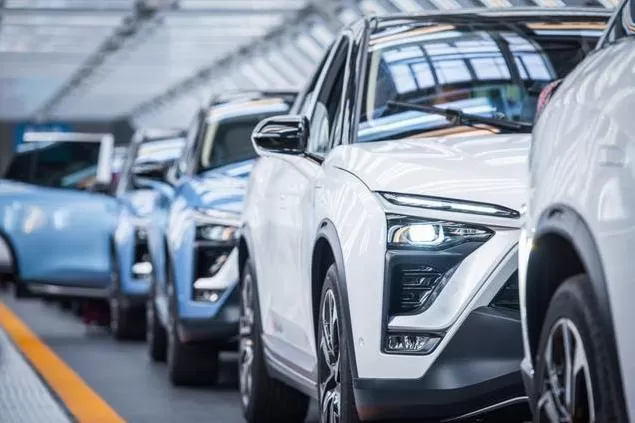The International Energy Agency released a outlook report on the 23rd, stating that global demand for electric vehicles will continue to grow strongly in the next decade, with sales expected to reach 17 million units in 2024, accounting for more than one-fifth of global car sales. The report points out that global electric vehicle sales in 2023 were close to 14 million units, accounting for 18% of total sales, and this proportion was 14% in 2022.
The surge in demand for electric vehicles will reshape the global automotive industry and significantly reduce oil consumption in the road transportation sector.
The report titled "2024 Global Electric Vehicle Outlook" predicts that by 2024, the sales of electric vehicles in China will increase to around 10 million units, accounting for approximately 45% of domestic car sales in China; In the United States and Europe, the proportion of electric vehicle sales is expected to be around one ninth and one quarter, respectively.
The Director of the International Energy Agency, Fatih Birol, said, "The global electric vehicle revolution is not only not losing momentum, but is also entering a new stage of growth."
The report points out that global electric vehicle sales surged by 35% last year, reaching a record high of nearly 14 million vehicles. On this basis, the electric vehicle industry still achieved strong growth this year. The demand for electric vehicles in emerging markets such as Vietnam and Thailand is also accelerating.
The report suggests that China continues to lead in the manufacturing and sales of electric vehicles. Last year, over 60% of the electric vehicles sold in China were more cost-effective than traditional cars with equivalent performance.
The report emphasizes that ensuring the availability of public charging facilities in sync with electric vehicle sales is crucial for maintaining growth momentum. Compared to 2022, the number of public charging stations installed globally increased by 40% in 2023. However, in order to meet the deployment level of electric vehicles promised by governments around the world, the charging network still needs to grow several times in the next decade.

The International Energy Agency stated in its annual outlook report that sales of battery electric vehicles and plug-in hybrid vehicles may increase by more than 20% this year, reaching 17 million vehicles, slightly less than 14 million vehicles in 2023, and are expected to grow to two-thirds of global sales by 2035.
"The global electric vehicle revolution is not just weak, but it seems to be preparing for a new stage of growth," said Fatih Birol, Executive Director of the International Energy Agency
He said, "From the current policy setting alone, by 2030, almost every three cars driving on Chinese roads will be electric, while in the United States and the European Union, almost every five cars will be electric. This shift will have a significant impact on the automotive and energy industries."
However, car manufacturers have warned that mainstream consumer interest in electric vehicles is declining due to their high prices and lack of charging points, which deter them. For example, Tesla's delivery volume decreased year-on-year in the first three months of this year.
Over the past year, in large markets such as the United States, the United Kingdom, and Germany, the use of incentives by the automotive industry to stimulate demand has also increased significantly as car manufacturers attempt to lower prices.
The International Energy Agency stated that the market is still growing strongly, with global sales in the first quarter of 2024 being a quarter higher than the same period in 2023. The institution stated, "The number of electric vehicles sold globally in the first three months of this year is roughly equivalent to the total sales of 2020."
The International Energy Agency has found that this growth mainly comes from China, where two-thirds of electric vehicles are priced lower than gasoline vehicles. In the United States and Europe, although electric vehicles have lower operating costs and are more economical in the long run, their purchase prices are still significantly higher than their engine competitors.
The International Energy Agency predicts that over time, the growth of Chinese brand exports will bring "downward pressure on purchase prices" to other markets, which will help promote the adoption of electric vehicles. (Xinhua News Agency, China News Service)